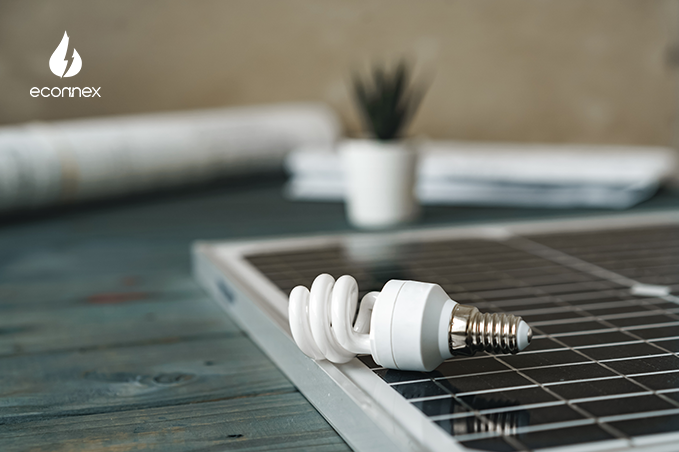
The ACT is one of the most reliable and affordable networks in the country.
There is only one distributor in the ACT called ActewAGL.
Consumers are free to compare retailer prices due to deregulation. This leads to more competition in the market, which should drive prices down further.
There are a limited number of suppliers including ActewAGL, Energy Australia, and Origin Energy.
Concession card holders may be eligible for an energy concession. Customers using an electric life support machine may also be eligible for a life support rebate. This includes required systems of heating and cooling.
Consumers may choose their own supplier, but there is price protection set by the government on the largest supplier ActewAGL. In order to get the best price, compare those available here.
Want to choose a new retailer? Click here to compare.
ActewAGL is the largest supplier in the ACT with over 90% of the market share. Energy Australia and Origin are the other options.
Concession card holders may be eligible for an energy concession. Customers on an electricity-run life support machine may also be eligible for a life support rebate. This includes required systems of heating and cooling. Customers with energy-efficient appliances may also be available for a rebate.
Consumers are free to compare retailer prices due to deregulation. This leads to more competition in the market, which should drive prices down further. In order to get the best price, compare those available here.
You can choose a gas retailer for a lower rate – click here to compare.
ACT residents – did you know your government offers financial assistance to people in the community that have difficulty paying their bills? There is a range of rebates and concessions available. They include the Combined Utilities Concession, Home Haemodialysis Rebate, and Life Support Rebate.
The government has also introduced Economic Survival Packages for households and businesses to assist people during the COVID-19 pandemic. There is no need to apply for these programs. The rebates will be automatically applied to your electricity bill by your retailer.
To find out more about any of these ACT rebates, check the details below.
This rebate appears on your electricity bill but helps with your electricity, gas, and water bills.
Rebate value: $700 excluding GST or $770 including GST per year (or it can be calculated at a day rate of 89.15c excluding GST or 98.10c including GST during summer and $3.34 excluding GST or $3.64 including GST during winter.)
Eligibility: Concession cards including Pensioner Concession Card, Health Care Card, Department of Veterans Affairs Card.
How to apply: It will be automatically applied when your valid concession card is registered with your retailer.
Rebate value: $1,200 excluding GST or $1,320 including GST per year, or $3.29 excluding GST or $3.62 including GST per day.
Eligibility: People using a home dialysis machine (or their parents or guardian).
Note: If you’re eligible for this rebate, you’ll also be eligible for the Life Support Rebate (see below).
How to apply: Contact your energy retailer.
Rebate value: $128.00 excluding GST or $140.80 including GST per year, or 35.068c excluding GST or 38.60c including GST per day.
Eligibility: People using approved life support equipment such as long-stay life support, respirator, dialysis machine, oxygen concentrator, CPAP regulator, nebuliser, LS reference, and TPN device.
How to apply: Contact your energy retailer.
Rebate value: $200 applied to your electricity bill in June or July 2020.
Eligibility: Valid concession cards, including Pensioner Concession Card (PCC), Health Care Card (HCC), Department of Veterans Affairs Card (DVA).
How to apply: You don’t need to apply for this rebate. It will be automatically applied to your electricity bill by your retailer.
Rebate value: $750 applied to your electricity bill in June or July 2020.
Eligibility: Small business owners with electricity usage below 100 megawatts per year.
How to apply: You don’t need to apply for this rebate. It will be automatically applied to your electricity bill by your retailer.
If you’ve been on the same energy plan for a long time, there might be newer plans available that offer much better rates. The rates will vary depending on where you live and the retailer you choose.
See how much you could save. Compare electricity retailers ACT.
Going solar can be expensive, so it’s good to know the ACT government still offers a couple of rebates for installing solar systems. They are the Solar for Low Income Program and the Household Battery Storage Program.
With the Solar for Low Income Program, Pension Concession Card holders can receive up to $2,500 towards installing a solar system. While with the Household Battery Storage program, a standard household with a 5kW system could be eligible for around $4,000 in support.
1. Solar for Low-Income Program
Value: Up to 50% of the total cost (capped at $2,500) for the supply and installation of a rooftop solar system.
Eligibility:
How to apply:
2. Household Battery Storage
Value:
Eligibility:
How to apply: Start by contacting one of the following battery storage providers: Evergen, Solahart, and SolarHub.
If you have a solar system that’s connected to the electricity grid, you could be eligible to receive a feed-in tariff.
It works like this: any surplus solar power that your solar system produces that you don’t use, you can feed back into the grid. Then for every kilowatt hour of electricity you export, you’ll receive a credit on your electricity bill. This is called a feed-in tariff and it will vary depending on your location and retailer.
Over 10 years ago, you might have been able to earn up to 60 cents per kilowatt hour for electricity exported to the grid. These days you are more likely to receive in the vicinity of 10-12 cents per kilowatt hour.
Some retailers may offer higher feed-in tariff rates. However, when considering a high feed-in tariff, you’ll also need to consider your electricity usage, usage rates, supply rates, any discounts, and the length of the contract.